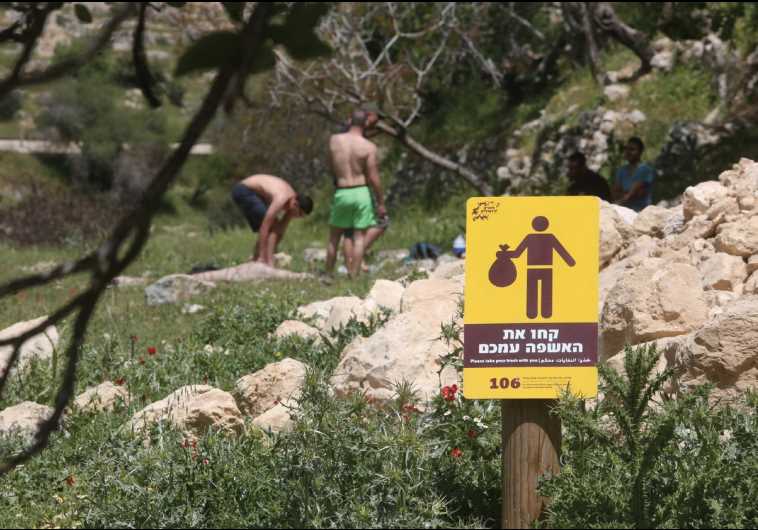Terra Incognita: The commandment Moses forgot? Stop littering
There is a story in the Bible that relates how Moses sent out spies to see the land of Canaan, which was to become home to the Jewish people.
 A SIGN admonishes people to clean up their litter in a public park(photo credit: MARC ISRAEL SELLEM)
A SIGN admonishes people to clean up their litter in a public park(photo credit: MARC ISRAEL SELLEM)